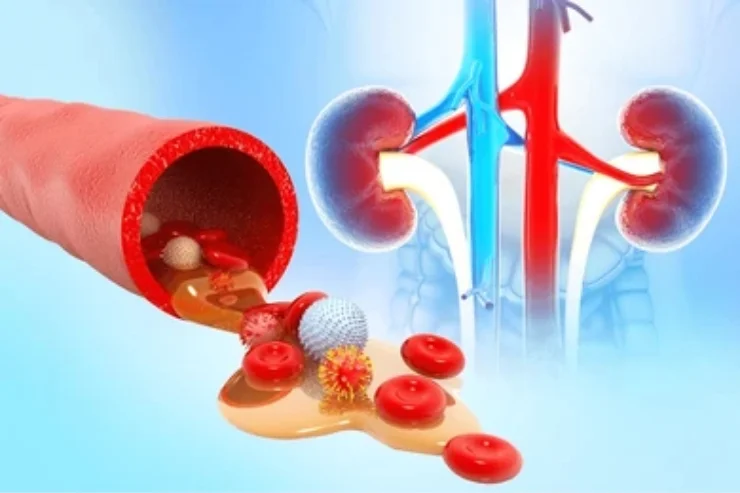Acute kidney injury

Acute Kidney Injury (AKI) is a sudden decrease in kidney function, leading to the accumulation of waste products and imbalances in body fluids and electrolytes. It can occur within hours or days and can range from mild to severe, often requiring immediate medical attention to prevent lasting damage.
Causes of AKI
AKI can result from various factors, which can be broadly categorized into three groups:
- Prerenal Causes: These are related to inadequate blood flow to the kidneys, often due to conditions like dehydration, severe blood loss, or heart failure.
- Intrinsic Causes: These are related to direct damage to the kidney tissues, which can be caused by issues like infections, inflammation, or exposure to nephrotoxic agents (such as certain medications or toxins).
- Postrenal Causes: These involve obstruction of the urinary tract, preventing urine from flowing out of the kidneys. Conditions like kidney stones, tumors, or prostate enlargement can lead to postrenal AKI.
Symptoms of Acute Kidney Injury
Individuals with AKI may experience a variety of symptoms, including:
- A decrease in urine output: While some may experience normal or increased urine production.
- Swelling: Fluid retention leading to swelling in the legs, ankles, or around the eyes.
- Nausea and vomiting: Gastrointestinal symptoms can occur due to toxin buildup.
- Fatigue and weakness: General malaise due to metabolic imbalances.
- Confusion or altered mental status: Resulting from accumulated waste products in the bloodstream.
Diagnosis of AKI
To diagnose AKI, healthcare providers typically perform:
- Blood Tests: Measuring serum creatinine and blood urea nitrogen (BUN) levels to assess kidney function.
- Urine Tests: Analyzing urine output and composition to determine the underlying cause.
- Imaging Studies: Ultrasound or CT scans may be performed to visualize the kidneys and urinary tract for obstructions or abnormalities.
Treatment and Management of AKI
The treatment for AKI focuses on addressing the underlying cause and supporting kidney function. Key management strategies include:
- Fluid Management: Ensuring proper hydration or addressing fluid overload.
- Medications: Adjusting or discontinuing nephrotoxic medications and treating any infections or underlying conditions.
- Dialysis: In severe cases, dialysis may be required to filter waste products from the blood when the kidneys cannot function adequately.
Prognosis and Long-term Management
The prognosis for AKI varies based on its cause, severity, and promptness of treatment. While many patients recover fully, some may experience persistent kidney problems or develop chronic kidney disease. Long-term management includes regular monitoring of kidney function and lifestyle modifications, such as dietary adjustments and managing underlying health conditions.
